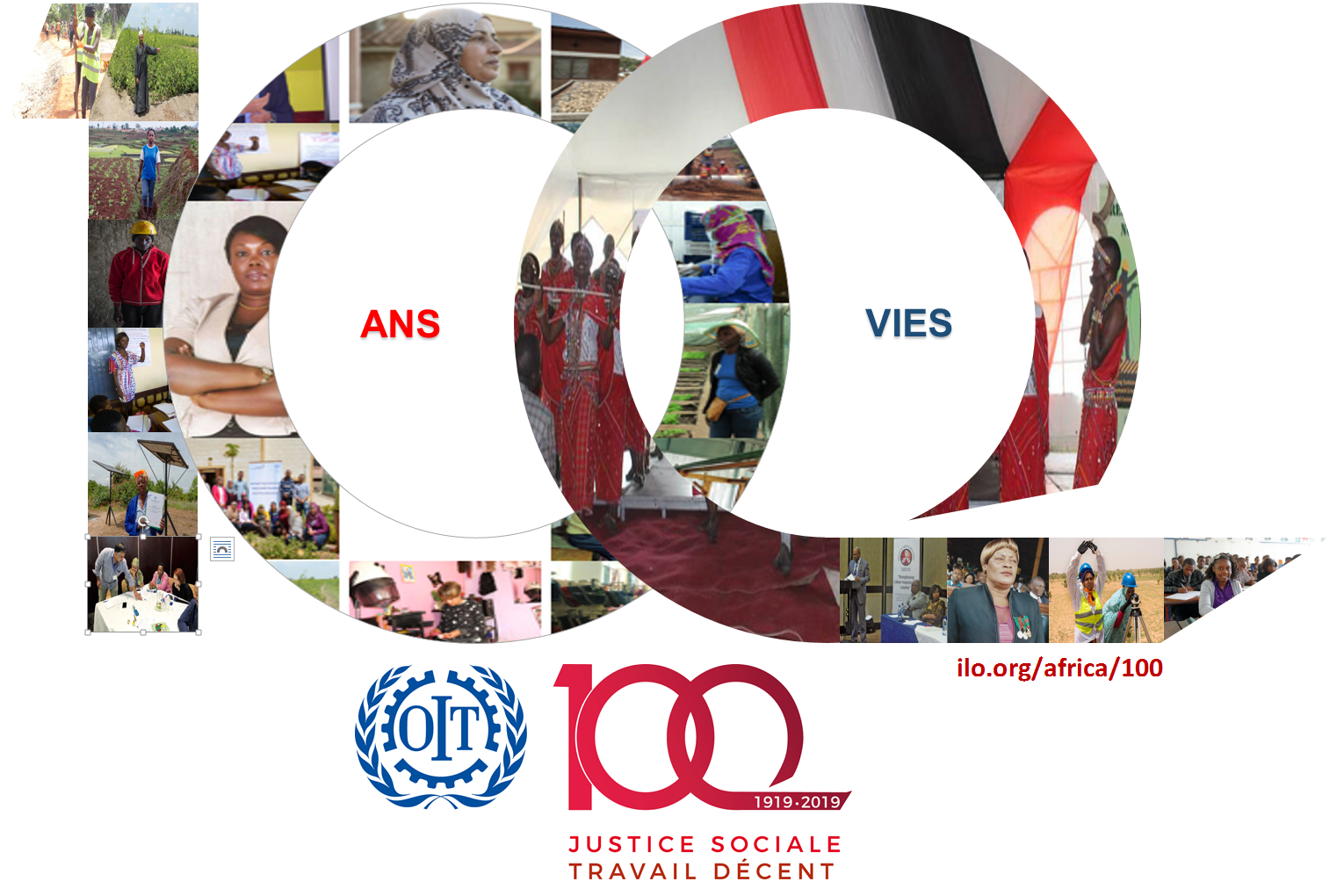« 100 Years – 100 Lives » | ZIMBABWE - “Employing people living with HIV can help to reduce the economic vulnerability in my community”
An ILO project supported vulnerable communities along the Chirundu Corridor to better protect them from HIV infection through economic empowerment.

CHIRUNDU CORRIDOR - Heavy trucks pass through the Chirundu Corridor, one of the major routes connecting Zimbabwe and Zambia in southern Africa. This is a vital transport hub, important for the economies of both countries and their neighbours. However, it also became a major route for the transmission of HIV.
The mix of long-distance lorry drivers — who go for weeks at a time without seeing their families — with widespread poverty existing along the corridor, results in sexual encounters between drivers and women. The risks they take with their health have an impact on the wider community.
But things are changing, to a large extent due to the recognition that productive work, and with it, economic empowerment, are important weapons in the fight against AIDS.
Barbara is a young woman who lives along the Chirundu Corridor, where she runs a business making doors and windows.
Her company prospered after she received training in business management, and she was given access to credit facilities through an HIV project run by the ILO.
Poverty and risky sexual behaviour
The project was founded on the recognition that, in addition to traditional prevention strategies, such as condom use, the underlying causes of risky sexual behaviour need to be addressed.
Additionally, there are needs to be widened access to HIV services if the next generation is to be AIDS-free.
Poverty may lead people to become involved in risky sexual behaviour. The project, therefore, involved supporting vulnerable populations become economically empowered by helping them start businesses. It also provided care services for transport workers and populations operating along the corridor.
“I employ 10 men from HIV-affected households. So my business is helping to reduce the economic vulnerability of others in my community,” she said.
Many other women living along the Chirundu Corridor have also started or improved their businesses and have become economically independent.
Beyond bringing them economic security, significant changes have been noted in the behaviours — and the general welfare — of the project’s beneficiaries. They now have access to better information and HIV services.
Fighting stigma and discrimination
According to a survey on the impact of the project, small successful businesses are flourishing, children are going to school, mothers are being kept alive and the number of women who have stopped engaging in unprotected sex has risen from 56 to 76 percent.
However, results like these can only be reached if stigma and discrimination in employment, education, health care and other settings are tackled at the same time.
The fact that Barbara employs men living with HIV in her business not only provides them with vital income, which will help make their families less vulnerable, but it also sends a powerful message to her community that people with HIV should not be discriminated against.
The mix of long-distance lorry drivers — who go for weeks at a time without seeing their families — with widespread poverty existing along the corridor, results in sexual encounters between drivers and women. The risks they take with their health have an impact on the wider community.
But things are changing, to a large extent due to the recognition that productive work, and with it, economic empowerment, are important weapons in the fight against AIDS.
Barbara is a young woman who lives along the Chirundu Corridor, where she runs a business making doors and windows.
Her company prospered after she received training in business management, and she was given access to credit facilities through an HIV project run by the ILO.
Poverty and risky sexual behaviour
The project was founded on the recognition that, in addition to traditional prevention strategies, such as condom use, the underlying causes of risky sexual behaviour need to be addressed.
Additionally, there are needs to be widened access to HIV services if the next generation is to be AIDS-free.
Poverty may lead people to become involved in risky sexual behaviour. The project, therefore, involved supporting vulnerable populations become economically empowered by helping them start businesses. It also provided care services for transport workers and populations operating along the corridor.
“I employ 10 men from HIV-affected households. So my business is helping to reduce the economic vulnerability of others in my community,” she said.
Many other women living along the Chirundu Corridor have also started or improved their businesses and have become economically independent.
Beyond bringing them economic security, significant changes have been noted in the behaviours — and the general welfare — of the project’s beneficiaries. They now have access to better information and HIV services.
Fighting stigma and discrimination
According to a survey on the impact of the project, small successful businesses are flourishing, children are going to school, mothers are being kept alive and the number of women who have stopped engaging in unprotected sex has risen from 56 to 76 percent.
However, results like these can only be reached if stigma and discrimination in employment, education, health care and other settings are tackled at the same time.
The fact that Barbara employs men living with HIV in her business not only provides them with vital income, which will help make their families less vulnerable, but it also sends a powerful message to her community that people with HIV should not be discriminated against.





